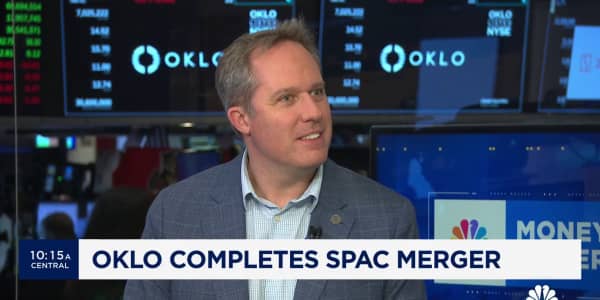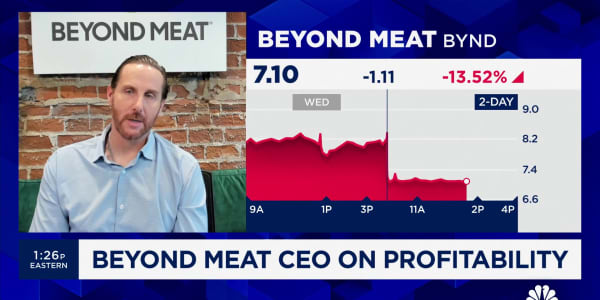Investors are getting comfortable with risk approaching pre-crisis levels, but stocks do not appear to be in a bubble, according to investor Howard Marks.
In the latest of his widely followed "Oaktree memos," Marks sounds numerous cautionary notes about the way in which investors are being herded into risk.
Yet when looking at the climate of 2007 compared to the current state of affairs, he said markets have a ways to go before reaching those dizzying heights.
"A rise in risk tolerance is something that should get your attention and focus your concentration," wrote Marks, the billionaire founder of Oaktree Capital Management. "But for it to be highly worrisome, it has to be accompanied by extended valuations. I don't think we're there yet. I think most asset classes are priced fully—in many cases on the high side of fair—but not at bubble-type highs."
(Read more: Hedge funds play buy-and-hold, and lose)
That's not to say there isn't trouble brewing.
"Certainly risk tolerance has been increasing of late; high returns on risky assets have encouraged more of the same; and the markets are becoming more heated," Marks said. "The bottom line varies from sector to sector, but I have no doubt that markets are riskier than at any other time since the depths of the crisis in late 2008 (for credit) or early 2009 (for equities), and they are becoming more so."
While he's been a prominent voice for market skepticism over the past several years, Marks describes his current stance as merely "middling."
That's to say, he's in the market, but with a high degree of caution that echoes Warren Buffett's wisdom, "The less the prudence with which others conduct their affairs, the greater the prudence with which we should conduct our own affairs."
Those comments reflect a trend in which some notable bears—David Rosenberg, Hugh Hendry and others—have gone bullish, while bulls such as the equity team at Goldman Sachs have warned that stocks are approaching fully valued and are ripe for at least a garden-variety correction of 10 percent or so.
Citigroup strategist Tobias Levkovich has been cautious as well, warning about investors who simply follow trends and look for stocks that appear cheap.
(Read more: Market bears falling all over the place)
"Chasing performance tends to be a tough way to make a living and generally will not provide much of an early warning sign since the pattern needs to change before the behavior does," Levkovich said in a note. "Thus, measuring investor zeitgeist in a clear manner can beat an anecdotal sense of shifting sands."
For their part, retail investors have given the market a pretty clear thumbs-up, with fairly solid fund inflows and sentiment surveys showing clear optimism.
The most recent Investors Intelligence poll, for instance, shows bulls outnumbering bears 53.6 percent to 15.5 percent, the lowest level of bearishness in 2013 by a pretty wide margin.
Yet Marks said the signs of a 2007-style market implosion have not lined up.

The lack of the complicated financial engineering instruments that precipitated the crash—and the outsize risk appetites that accompanied them—make him hopeful that recklessness isn't at the same levels.
(Read more: It's the end of the world: Nomura)
Yet, Marks also sees the huge liquidity levels, disdain for traditional investing instruments such as bonds and a lack of concern about risk.
The Federal Reserve has expanded its balance sheet to just below the $4 trillion mark, a policy he said is fomenting risk.
"Risk tolerance levels and leverage haven't returned to their pre-crisis highs in quantitative terms, but there's no doubt in my mind that risk bearing is back in vogue," Marks said.
For investors, it adds up to a tricky environment.
"There's no doubt in my mind that the trend is in the direction of increased risk, and I see no reason to think that trend will be arrested anytime soon," Marks said. "Risk is likely to reach extreme levels someday—it always does, eventually—and great caution will be called for. Not yet."
—By CNBC's Jeff Cox. Follow him on Twitter @JeffCoxCNBCcom.






